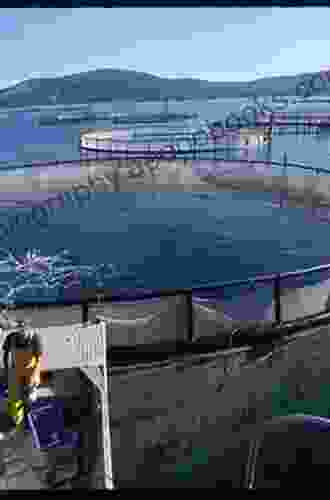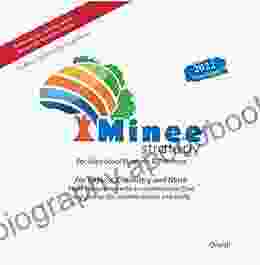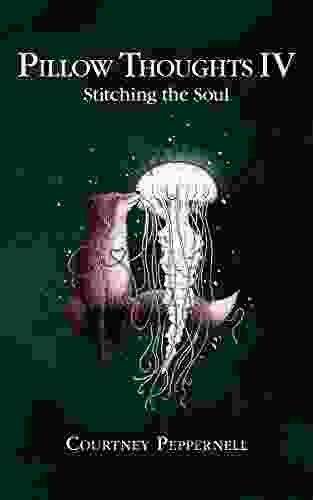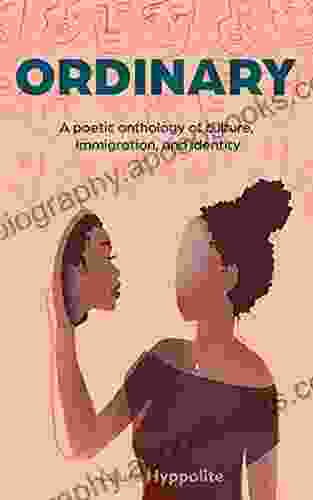Sustainability, Interdependence, Territory, and Regulation in Fish Farming: Insights for a Sustainable Blue Economy

Fish farming, also known as aquaculture, is a rapidly growing industry that is essential for meeting the global demand for seafood. However, the sustainability of fish farming has been a subject of increasing concern due to environmental, economic, and social issues.
5 out of 5
| Language | : | English |
| File size | : | 1431 KB |
| Text-to-Speech | : | Enabled |
| Screen Reader | : | Supported |
| Enhanced typesetting | : | Enabled |
| Print length | : | 242 pages |
This article explores the intricate relationship between sustainability, interdependence, territory, and regulation in fish farming. By understanding these factors, we can gain insights into the challenges and opportunities for developing a sustainable blue economy that balances economic growth with environmental protection and social equity.
Sustainability in Fish Farming
Sustainability in fish farming encompasses environmental, economic, and social dimensions. Environmental sustainability refers to practices that minimize the impact of fish farming on the environment, such as reducing pollution and conserving biodiversity. Economic sustainability ensures the long-term profitability of fish farming operations, while social sustainability addresses the well-being of local communities and workers in the industry.
Striving for sustainability in fish farming requires a holistic approach that considers the entire production system, from feed sourcing to waste management. It also requires collaboration among stakeholders, including fish farmers, policymakers, researchers, and consumers.
Interdependence in Fish Farming
Fish farming is an interconnected system that involves various stakeholders and sectors. Feed suppliers, equipment manufacturers, processing plants, and retailers all play crucial roles in the industry's value chain.
Interdependence creates opportunities for collaboration and innovation. By working together, stakeholders can identify and address challenges related to sustainability, such as developing more efficient feed formulations or reducing waste. However, interdependence can also lead to conflicts of interest and power imbalances, which need to be managed effectively.
Territory in Fish Farming
Territory refers to the physical and legal space where fish farming takes place. It includes the water column, the seabed, and the surrounding environment. Allocating and managing territory for fish farming is a complex issue that involves multiple stakeholders, including governments, fish farmers, and local communities.
Territory can be a source of conflict, especially in areas with competing uses, such as fishing, tourism, or conservation. Clear and fair territorial arrangements are essential for ensuring the sustainable development of fish farming and minimizing conflicts among stakeholders.
Regulation in Fish Farming
Regulation plays a crucial role in promoting sustainability in fish farming. Governments have the responsibility to set environmental standards, monitor compliance, and enforce regulations to protect the environment and ensure fair competition.
Effective regulation can help to address externalities, such as pollution or habitat destruction, that can arise from fish farming operations. However, overly burdensome regulations can stifle innovation and hinder the growth of the industry. Striking the right balance between environmental protection and economic development is essential.
Sustainability, interdependence, territory, and regulation are key factors that shape the future of fish farming. By understanding the complex interactions between these factors, we can develop strategies for a sustainable blue economy that ensures the long-term viability of the industry while minimizing its environmental and social impacts.
Collaboration, innovation, and adaptive management are essential for navigating the challenges and opportunities of sustainable fish farming. By working together, stakeholders can create a future where fish farming contributes to food security, economic growth, and a healthy environment for generations to come.
5 out of 5
| Language | : | English |
| File size | : | 1431 KB |
| Text-to-Speech | : | Enabled |
| Screen Reader | : | Supported |
| Enhanced typesetting | : | Enabled |
| Print length | : | 242 pages |
Do you want to contribute by writing guest posts on this blog?
Please contact us and send us a resume of previous articles that you have written.
 Book
Book Novel
Novel Page
Page Chapter
Chapter Text
Text Story
Story Genre
Genre Reader
Reader Library
Library Paperback
Paperback E-book
E-book Magazine
Magazine Newspaper
Newspaper Paragraph
Paragraph Sentence
Sentence Bookmark
Bookmark Shelf
Shelf Glossary
Glossary Bibliography
Bibliography Foreword
Foreword Preface
Preface Synopsis
Synopsis Annotation
Annotation Footnote
Footnote Manuscript
Manuscript Scroll
Scroll Codex
Codex Tome
Tome Bestseller
Bestseller Classics
Classics Library card
Library card Narrative
Narrative Biography
Biography Autobiography
Autobiography Memoir
Memoir Reference
Reference Encyclopedia
Encyclopedia Sophy Henn
Sophy Henn Alexander Etkind
Alexander Etkind Alex O Connor
Alex O Connor Julia Stonehouse
Julia Stonehouse Alexandra Bracken
Alexandra Bracken Pizpaw Patterns
Pizpaw Patterns Fred C Pampel
Fred C Pampel Caz Finlay
Caz Finlay Jamie Brenner
Jamie Brenner L L Matsui
L L Matsui Pamela Geller
Pamela Geller Nicolas Barreau
Nicolas Barreau Ali Hazelwood
Ali Hazelwood Peter Elkind
Peter Elkind Alexander Kmentt
Alexander Kmentt Paul Oswell
Paul Oswell Jane Watson
Jane Watson Emily Childs
Emily Childs Tolu Oloruntoba
Tolu Oloruntoba Rick Durden
Rick Durden
Light bulbAdvertise smarter! Our strategic ad space ensures maximum exposure. Reserve your spot today!
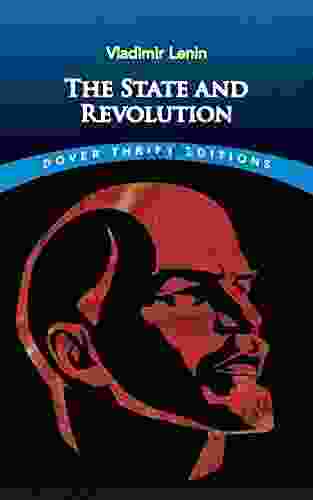
 Herman MelvilleThe State and Revolution: A Monumental Treatise on Marxist Political Thought
Herman MelvilleThe State and Revolution: A Monumental Treatise on Marxist Political Thought George R.R. MartinFollow ·9.2k
George R.R. MartinFollow ·9.2k Branden SimmonsFollow ·18.3k
Branden SimmonsFollow ·18.3k H.G. WellsFollow ·9.4k
H.G. WellsFollow ·9.4k Clay PowellFollow ·7k
Clay PowellFollow ·7k Ben HayesFollow ·11k
Ben HayesFollow ·11k Garrett PowellFollow ·19.8k
Garrett PowellFollow ·19.8k Milton BellFollow ·7.9k
Milton BellFollow ·7.9k Henry David ThoreauFollow ·13.2k
Henry David ThoreauFollow ·13.2k
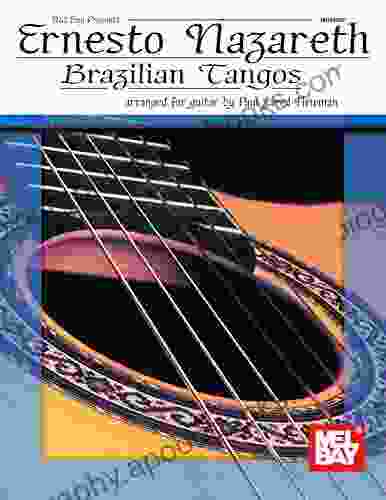
 Chuck Mitchell
Chuck MitchellUnveiling the Enchanting World of Ernesto Nazareth's...
A Musical Journey...

 Brent Foster
Brent FosterSusan Boyle: Dreams Can Come True
Susan Boyle's incredible journey from...

 Tom Clancy
Tom ClancyThe Movement and the Myth Provocations: Unveiling the...
In the realm of human...
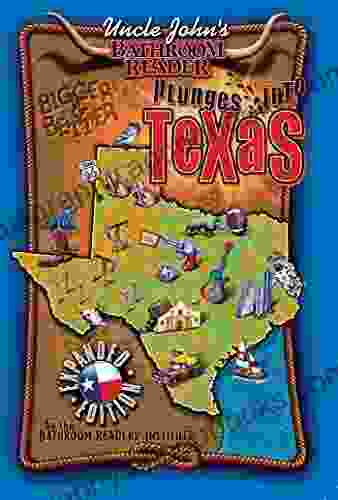
 Edward Reed
Edward ReedUncle John's Bathroom Reader Plunges Into Texas: Bigger...
Uncle John's Bathroom...
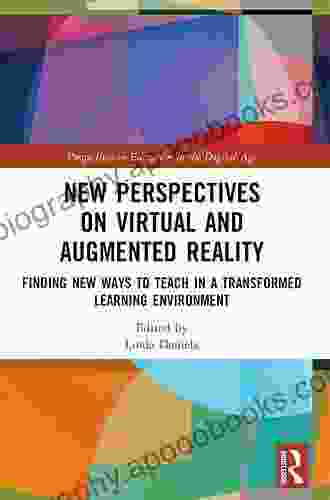
 Justin Bell
Justin BellNew Perspectives on Virtual and Augmented Reality: A...
Dive into the Cutting-Edge World of...
5 out of 5
| Language | : | English |
| File size | : | 1431 KB |
| Text-to-Speech | : | Enabled |
| Screen Reader | : | Supported |
| Enhanced typesetting | : | Enabled |
| Print length | : | 242 pages |


